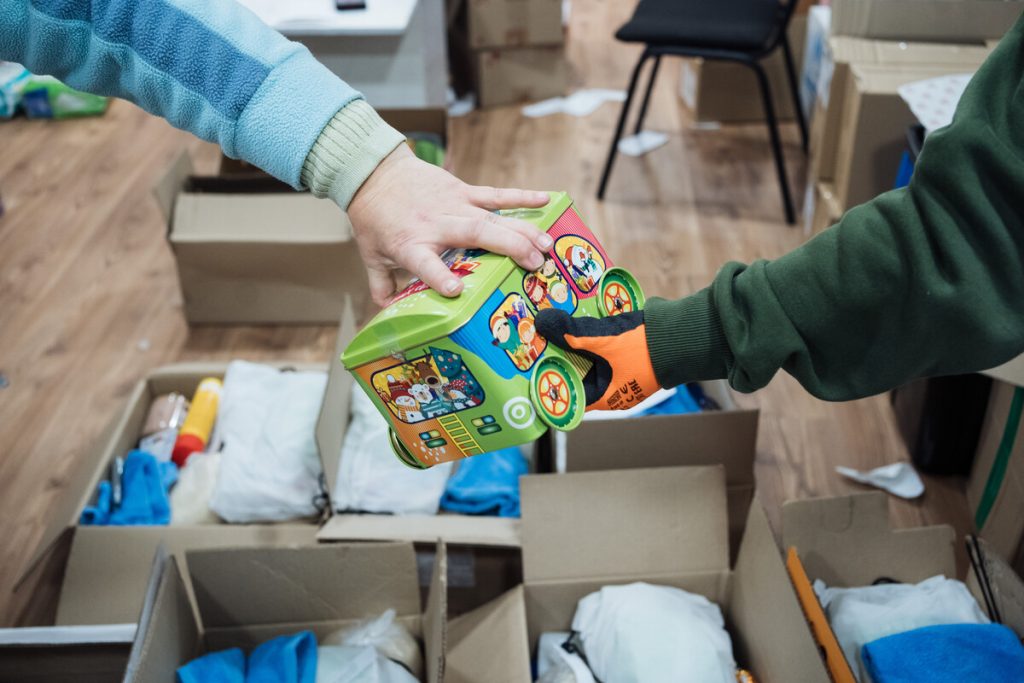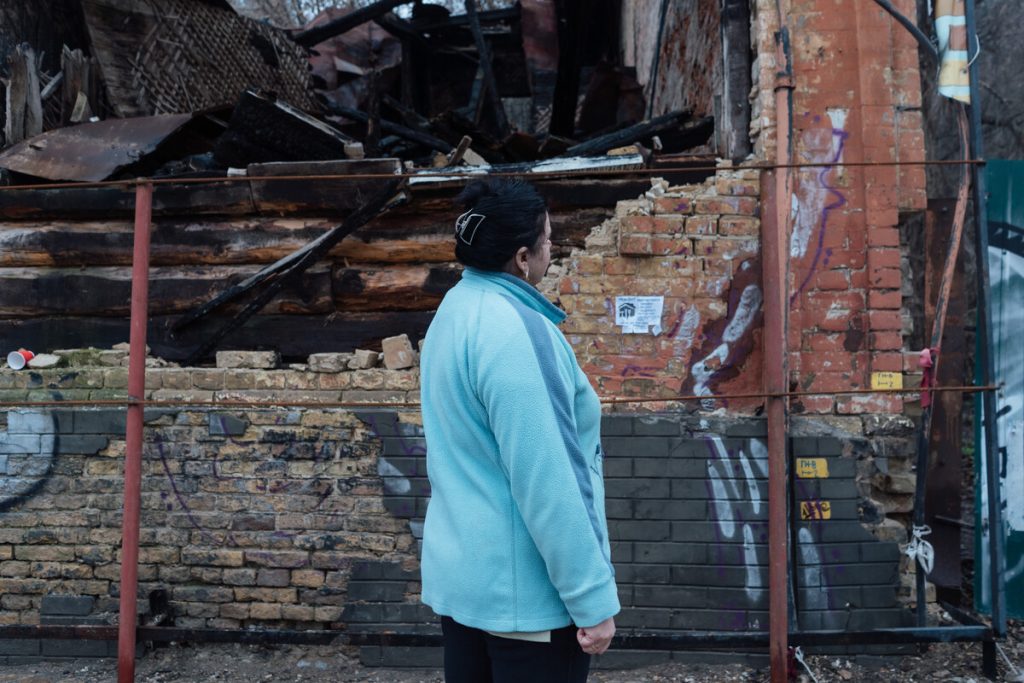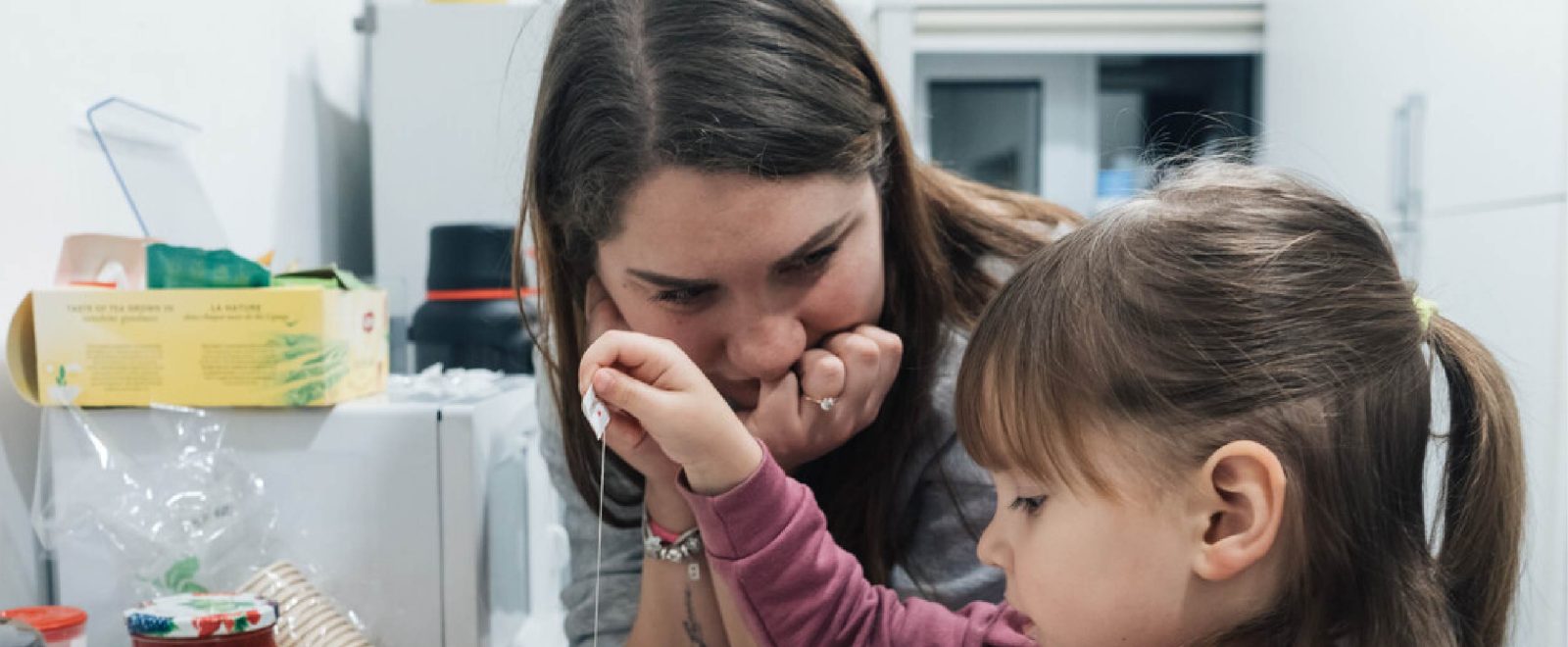Conflicts don’t impact all people equally. Women, girls, and marginalized groups face increased risks. Whether this is due to a lack of access in times of crisis to key services or because of a heightened threat of violence. We’re deeply concerned by the discrimination, inequalities, and abuses being suffered by more vulnerable groups throughout the Ukraine crisis since the invasion began a year ago.
Gendered impacts of the crisis
War and violence exacerbate structural inequalities and discrimination that women and girls face before the conflict. As a result of this, they experience increases in gender-based violence (GBV) and transactional sex for food and survival, and girls, as well as boys in Ukraine, have been forced to leave school.
As a result of the conflict, domestic and sexual violence rates have increased. There are still informational gaps on this issue, but the correlation between conflict and gender-based violence is well documented, and OHCHR already reported increases in this type of violence in conflict-afflicted areas in Ukraine between 2014 and 2017.
This increase in domestic and sexual violence means there is more demand for services related to gender-based violence and mental health among women and girls, but in Ukraine as well as in refugee recipient countries, there are gaps in accessing these services.
Women and girls are also facing challenges accessing sexual and reproductive health services, particularly in some refugee-recipient countries like Poland, whose conservative laws limit access to abortion services. This means that women and girls who have been sexually abused and violated by combatant forces in the conflict are not able to access the services they need.
Women’s protection in the Ukraine response has been grossly inadequate in the initial phases of the response, and there are still gaps in the operational response to make sure girls and women are safe. Initial assessments revealed high risks of human trafficking, particularly in Moldova, Romania, and Ukraine. Most persons trafficked are women and girls who experience sexual and labor exploitation.
ActionAid’s partner organizations are helping women and girls, and young people to restore their physical and mental well-being through psycho-social support. They also are providing legal counseling and safe and sustainable housing, and educational opportunities and training necessary to obtain new skills that help them to lead a more dignified life in the midst of crises and mitigate the effects of the war.
Marginalized communities and antiracism
We are extremely concerned about the impact of the Russian invasion on marginalized groups of people and refugee communities, who are in a highly vulnerable situation and face discrimination.

Conflict makes existing gaps and inequalities worse, including access to services for groups and identities such as the Roma community and LGBTQIA+ community, as well as immigrants from countries outside of Ukraine. Many communities have specific needs that can be overlooked in crisis. For example, the ILGA-Europe (the European branch of the International Lesbian and Gay Alliance) has mapped the urgent needs of trans and intersex people in cities across Ukraine.
Under the Refugee Convention, the international community has both a moral and legal obligation to assist all refugees, regardless of race, religion, or country of origin. Therefore, ActionAid wants to see the necessary steps taken to ensure that all refugees are treated equally and have access to the right to a decent life.
Women and Youth Leadership
Women report that they are being excluded from important decision-making processes at all levels whilst at the same time being forced to play a critical role in the humanitarian response. This role is played in very difficult conditions as civil society continues to push support for intersectional responses that respond to the inclusive rights and identities currently discriminated against in Ukraine and the neighboring countries. Many women leaders and their organizations in the region face smear campaigns, harassment, prosecution, and other threats.
Their work and activism, through well-rooted women-led organizations and young people-led organizations and initiatives, remains essential to continue to defend and advance gender equality and women’s right while military priorities dominate Ukraine and the region.
From the onset, young people in Ukraine and neighboring countries have been powerful agents of change, acting as first responders and leaders in vital humanitarian efforts. One year later, young people continue to play a crucial role as volunteers and leaders in the distribution of aid, social cohesion, accountability, inclusive recovery, and dignified living.
It is crucial to create spaces for young people, especially young women and other excluded groups, to lead reconstruction and recovery efforts. Their role in local communities and participation is essential at all stages of the humanitarian life cycle.
Taking action
We’ve been working with local women-led and young people-led organizations and those working with and led by marginalized groups, such as Roma, LGBTQIA+, third-country nationals, or sex workers, to provide support on a wide range of rights-based issues, including the right to basic needs and protection. We’ve ensured the protection of women and girls is at the heart of our humanitarian and recovery response plans, working alongside local women-led organizations that provide humanitarian support to and prioritize the needs and of women and girls from the most marginalized communities.
Our partner organizations are supporting the LGBTQIA+ community by providing psycho-social and legal support, medicines, food, relocation, and safe houses for a permanent stay.
The longer the conflict goes on, the more stressful the situation becomes for everyone affected inside and outside of Ukraine, with increased mental health risks in addition to worries about immediate needs and what the future might hold.

